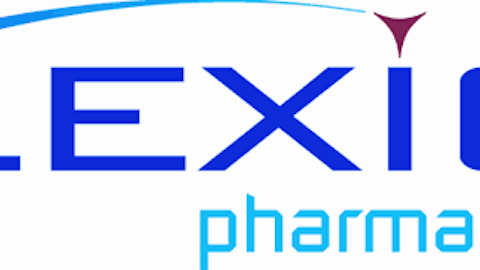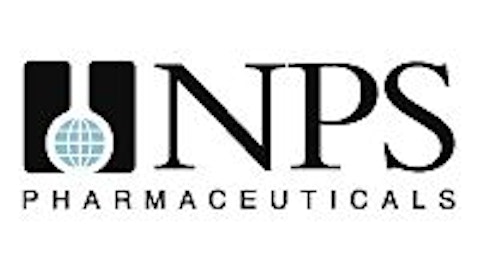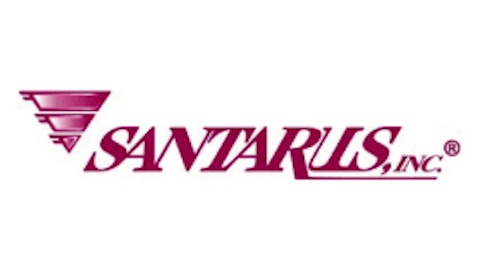Biotechnology stocks often trade with excessive valuations, until one day, large losses occur. The best way to protect yourself is to be logical when investing, and use industrywide valuing metrics as a way to find limits or exit points. With that said, after massive gains, is it possible that upside for these four top biotech stocks is now limited at best?
Understanding valuation
There’s a big difference between biotechnology and drug companies. For drug companies, most have many products, and all produce revenue. According to NYU, there were 223 companies in this space. In biotechnology, most companies are in the clinical space, and some produce revenue while others do not. Nonetheless, the valuing metrics are different, based on future sales, with the goal being to become a well-established drug company.
The difference in valuation is wide between these two industries, as the drug industry trades at 2.9 times sales while biotechnology is at six times sales. Typically, with companies in biotech either having greater growth or no sales, valuations are higher relative to fundamentals. Therefore, six times “current” sales becomes a healthy valuation while 2.9 times peak sales shows that all upside is priced into a stock.
With that in mind, let’s look at a few companies using this model that may be presenting very little future upside for current shareholders.
“If” peak sales are reached
Alexion Pharmaceuticals, Inc. (NASDAQ:ALXN)‘ Soliris is used to treat rare genetic disorders and diseases. It is currently FDA approved to treat two diseases, but is being developed to treat five additional genetic disorders. Alexion Pharmaceuticals, Inc. (NASDAQ:ALXN) does have four other clinical products, but all are in the early phases of development and are many years from an FDA approval.

Soliris could earn peak revenue of $3.5 billion globally if all five additional indications are FDA approved. However, that is a big “if.”
With current 12-month sales of $1.32 billion and top-line growth of 35%, $3.5 billion looks to be a long ways off. In addition, Alexion Pharmaceuticals, Inc. (NASDAQ:ALXN) with a $22 billion market cap trades at a whopping 6.3 times peak sales, more than double the average for peak sales. Therefore, it’s hard to imagine a scenario where Alexion Pharmaceuticals, Inc. (NASDAQ:ALXN) trades significantly higher from this point forward.
Global sales are well accounted for
Pharmacyclics, Inc. (NASDAQ:PCYC) has traded higher by an incredible 6,500% in the last five years, behind the excitement, expectations, and soon-to-be-approved leukemia/lymphoma drug ibrutinib.
Pharmacyclics, Inc. (NASDAQ:PCYC) has partnered with Johnson & Johnson for the development of this drug, sharing 50% of the revenue but only responsible for 40% of the costs. The most recent of estimates, from Goldman, have pegged peak global sales at $6 billion for ibrutinib, which is if all indications are approved and full penetration into the market is met.
If so, Pharmacyclics, Inc. (NASDAQ:PCYC) is poised to earn $3 billion in annual sales by 2025. Currently, the stock is trading with a market cap of $8.7 billion, or exactly 2.9 times the most generous of estimates.
While Pharmacyclics, Inc. (NASDAQ:PCYC) does have two other late-stage products, it appears as though most upside for its blockbuster drug ibrutinib has been valued into its stock, leaving little upside over the next few years.
A questionable future creates risk
Aegerion Pharmaceuticals, Inc. (NASDAQ:AEGR) has rallied 530% over the last year in response to its newly approved drug Juxtapid, which treats a rare-cholesterol disease.
Aegerion Pharmaceuticals, Inc. (NASDAQ:AEGR) is a tough stock to assess, as its drug is priced around $300,000 annually, and the market size for Juxtapid is questionable at best. For example, the company claims $1 billion potential behind 3,000 domestic patients.
However, the FDA estimates the disease’s occurrence to be one in a million, or roughly 315 annual claims. Seeing as how Aegerion Pharmaceuticals, Inc. (NASDAQ:AEGR) already has 215 patients on Juxtapid, we can assume that the market is larger than 315 claims, but 3,000 is a tough stretch.
Hence, if Aegerion Pharmaceuticals, Inc. (NASDAQ:AEGR) can peak with 1,000 patients on Juxtapid, sales could reach $300 million annually. With a $2.65 billion market cap, this means that Aegerion is trading at 8.8 times peak sales, which means it’s overvalued in my opinion.
Now, some investors will point to the global market and stand behind the company’s claim of 3,000 domestic patients, but I think 1,000 patients is a safe number since Aegerion Pharmaceuticals, Inc. (NASDAQ:AEGR) faces competition. Sanofi’s Kynamro is cheaper and treats the same disease, and because of Sanofi’s marketing presence, we have to be believe that this market will be split.
Clearly ignoring peak sales
Raptor Pharmaceutical Corp. (NASDAQ:RPTP) has traded higher by 200% in the last year and now trades with a market cap of $850 million. The company’s FDA-approved drug Procysbi treats a rare disease called nephropathic cystinosis.
With just 500 patients in the U.S who have this disease, and peak sales of only $60 million for Procysbi, it appears as though shares of Raptor Pharmaceutical Corp. (NASDAQ:RPTP) have gotten ahead of the fundamentals. Currently, shares of Raptor are trading at 14.2 times peak sales, which is many times higher than the industry average.
The company is testing its product on both Huntington’s disease and a form of liver disease. However, we are yet to see any data, and it is difficult to determine whether these additional indications will succeed in clinical testing. Therefore, investors must assume that $60 million in sales is the peak, which shows that Raptor Pharmaceutical Corp. (NASDAQ:RPTP) is richly valued.
Final thoughts
Dendreon had a market cap more than $6.5 billion in 2011, as analysts projected peak sales of $1 billion for its drug Provenge. With problems during the drug’s commercialization, shares of Dendreon proved to be overvalued and have since fallen 90% as sales have not met expectations.
For such companies, like those discussed, the market places high expectations and when not met, significant loss can occur. As a result, these stocks must be considered as extremely risky, and investors should tread carefully when buying at these levels.
The article Have These 4 Biotechs Peaked? originally appeared on Fool.com and is written by Brian Nichols and is written by Brian Nichols.
Brian Nichols has no position in any stocks mentioned. The Motley Fool has no position in any of the stocks mentioned.
Copyright © 1995 – 2013 The Motley Fool, LLC. All rights reserved. The Motley Fool has a disclosure policy.





